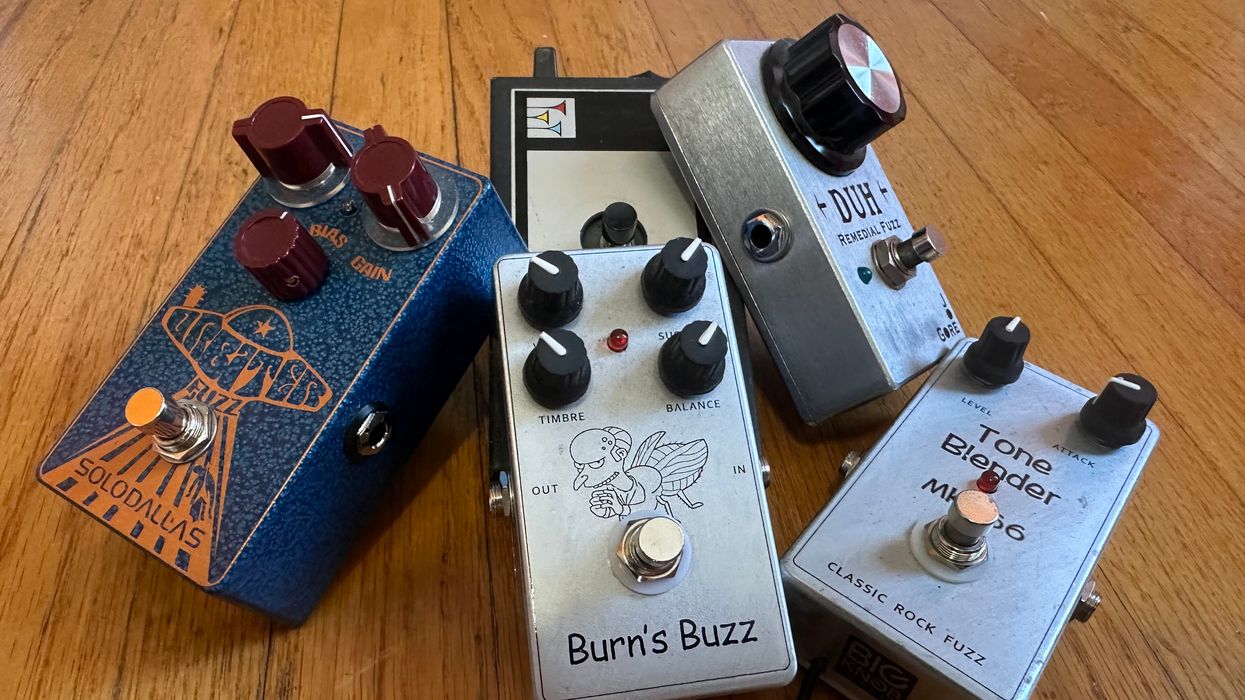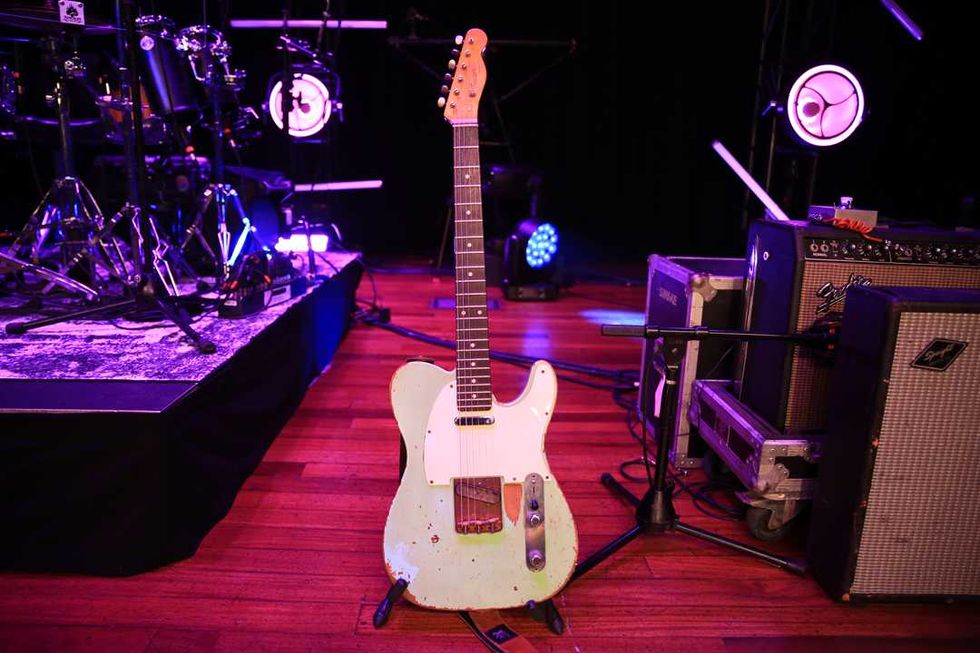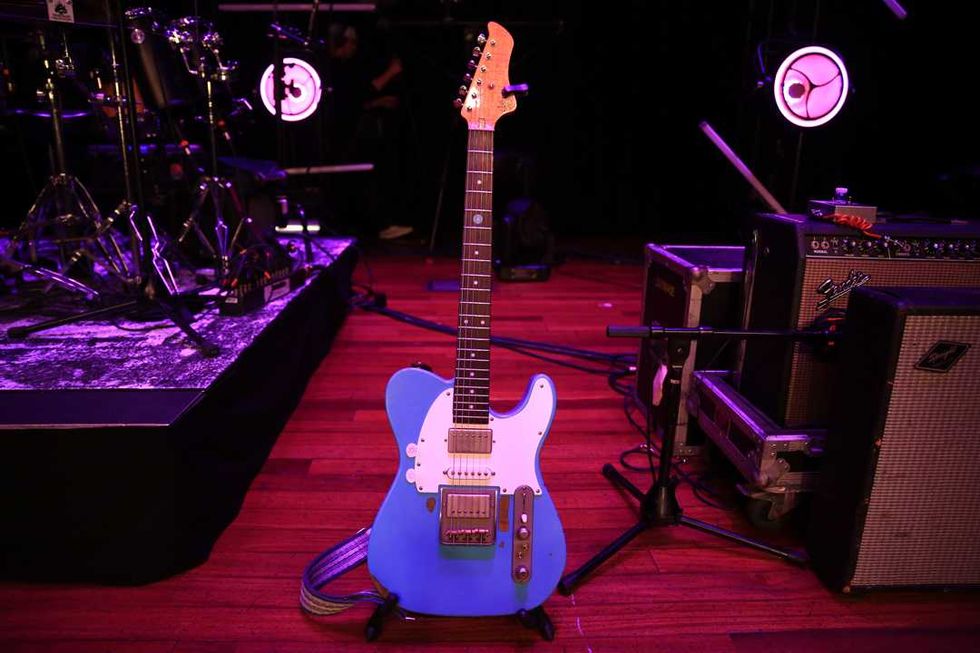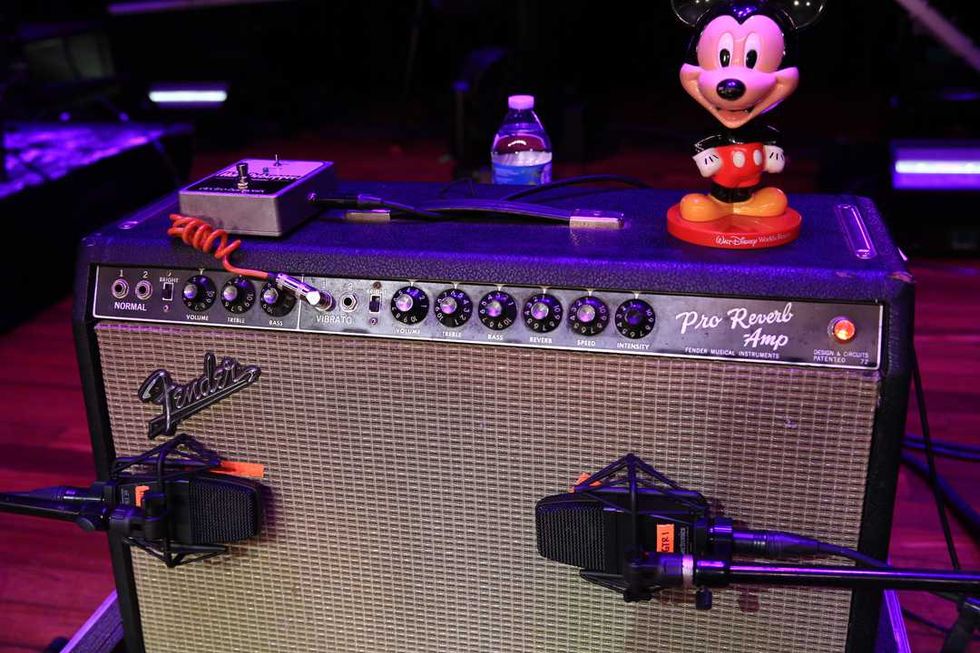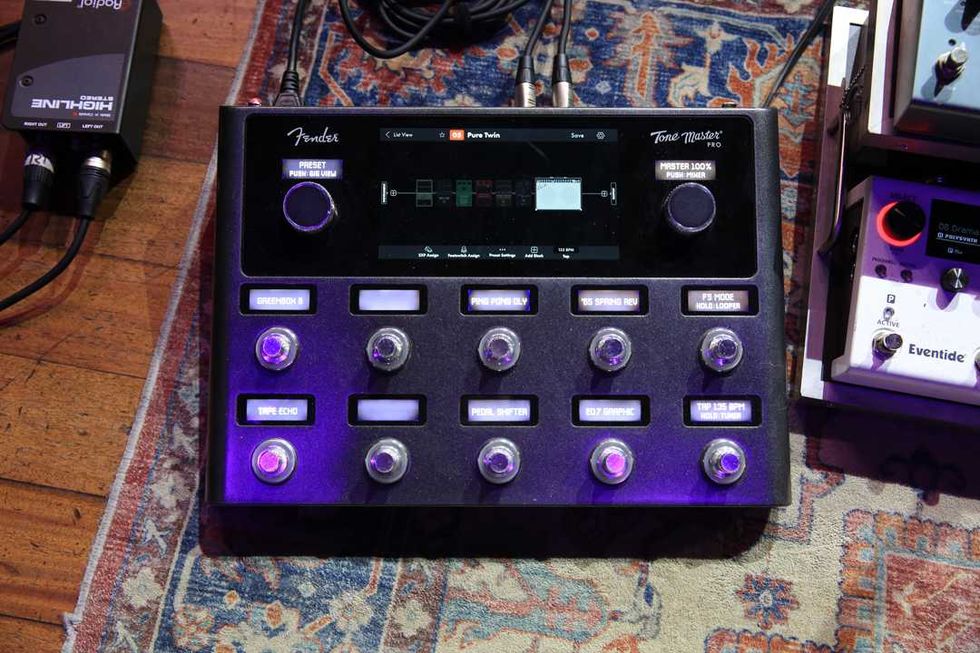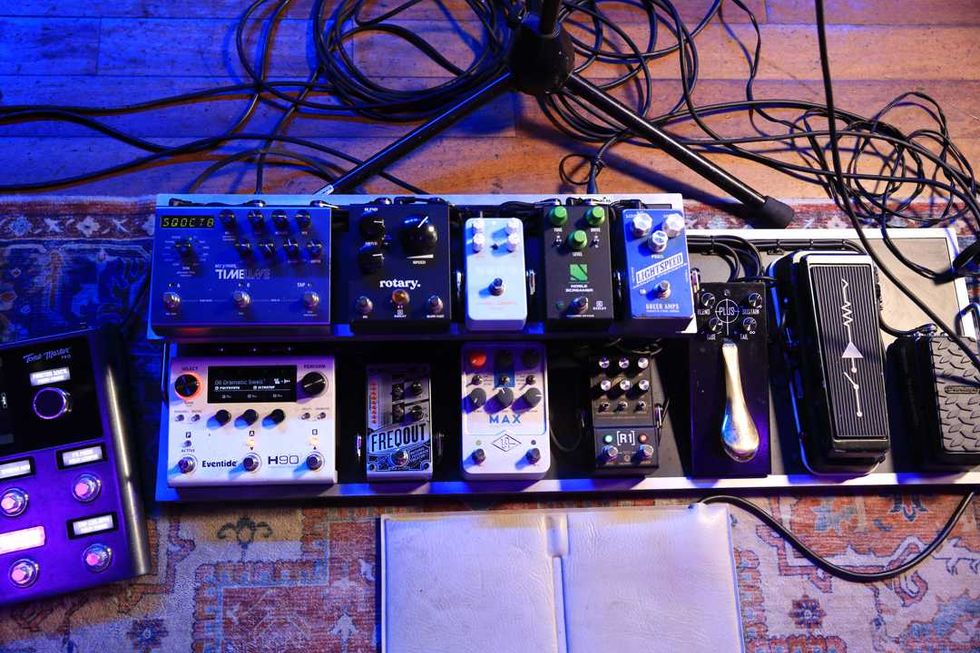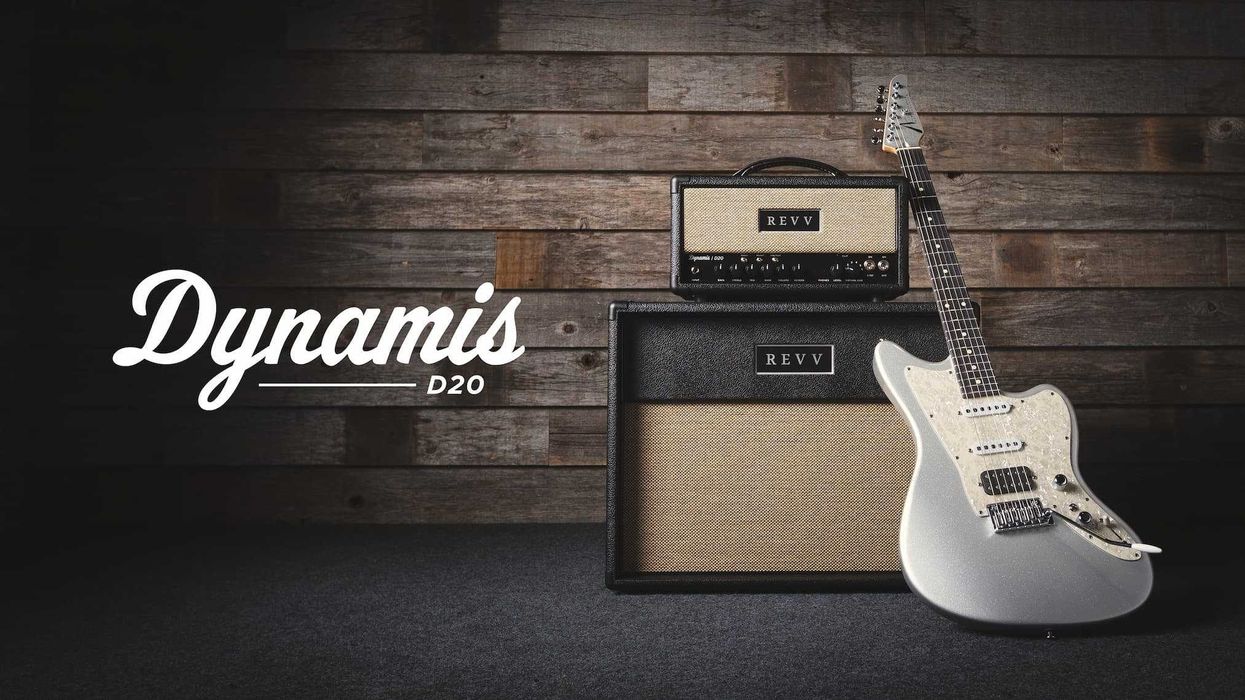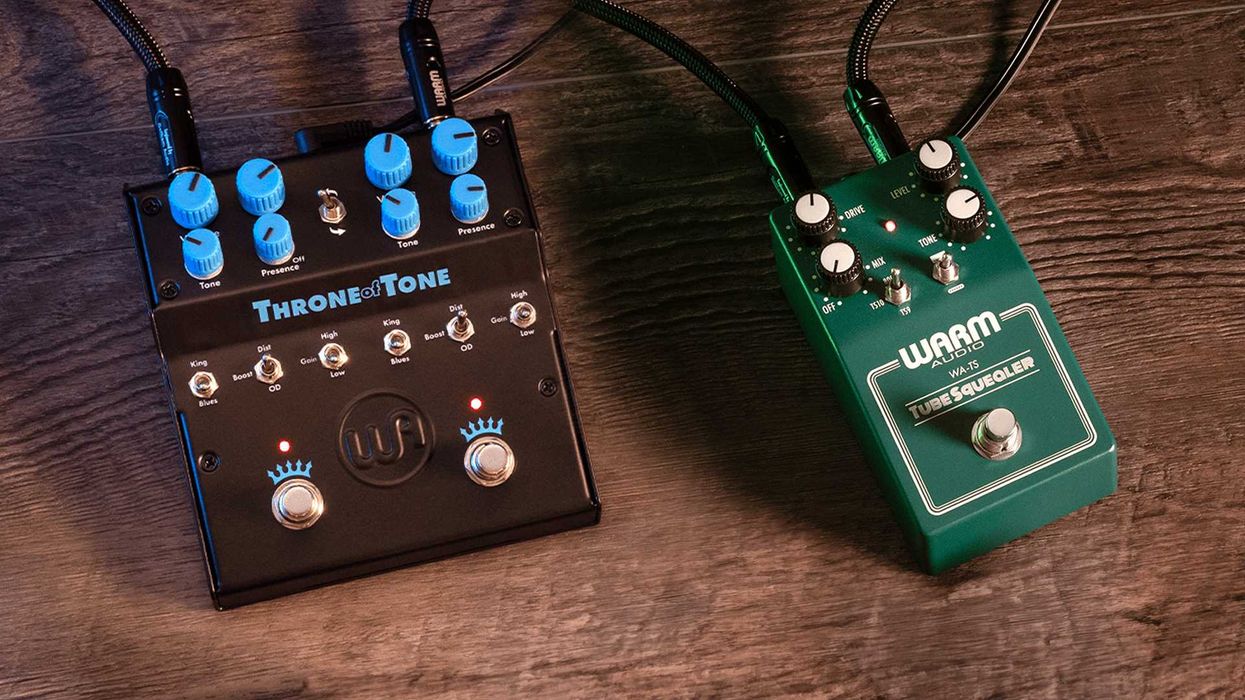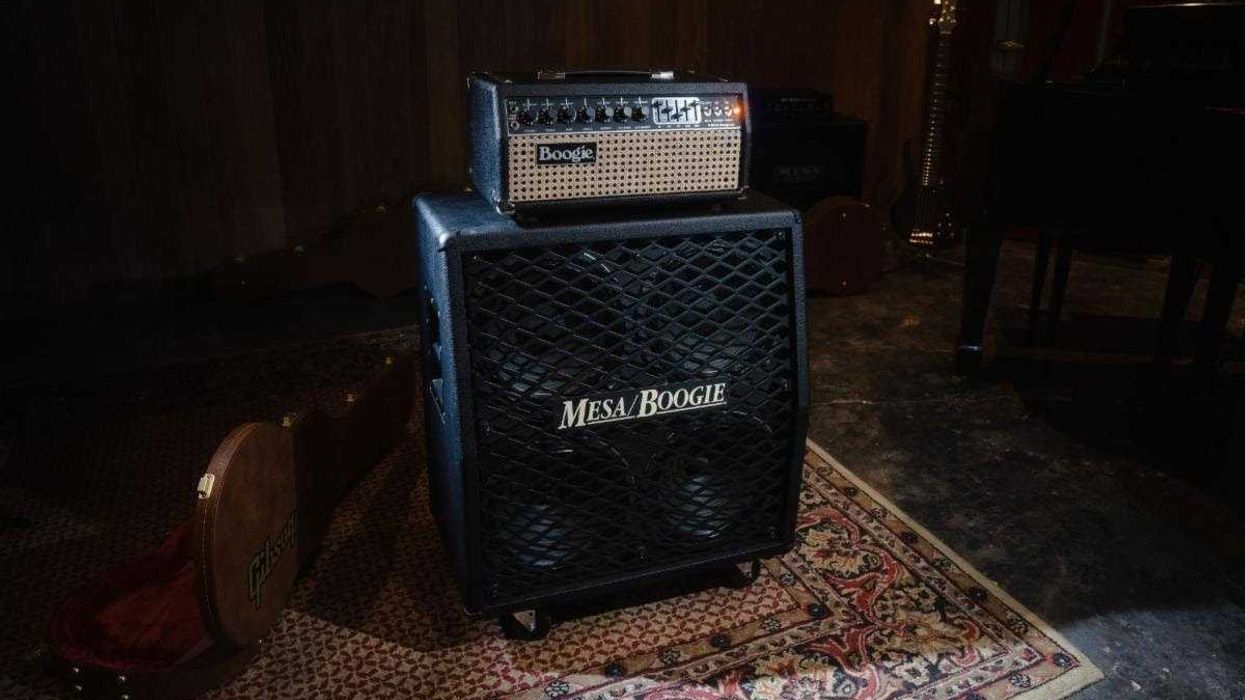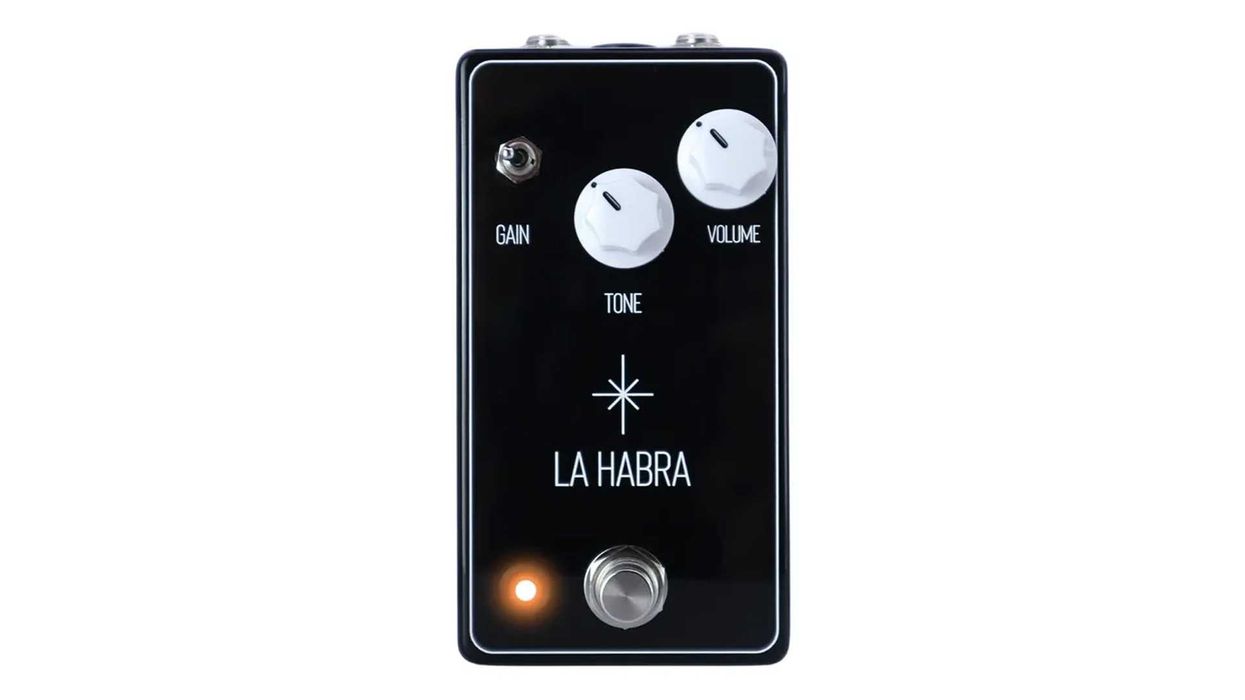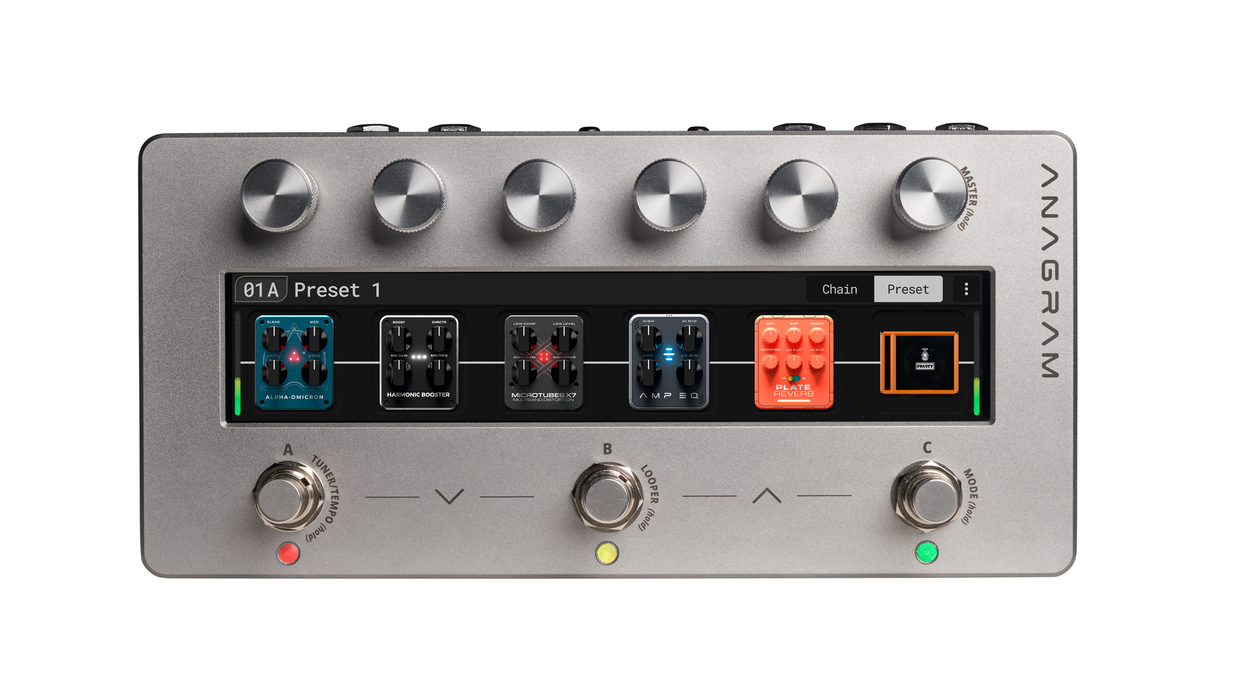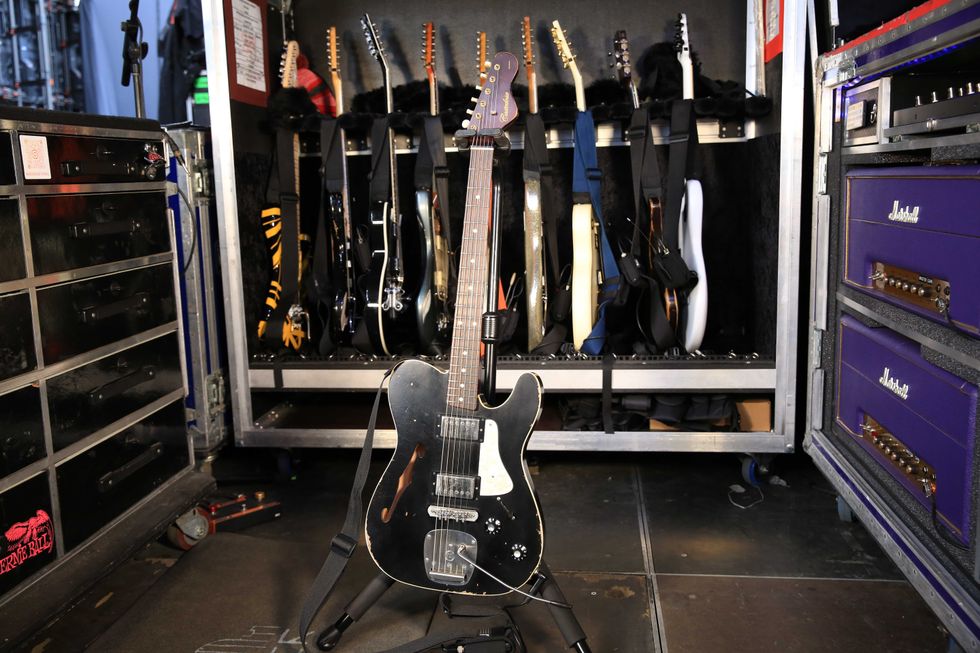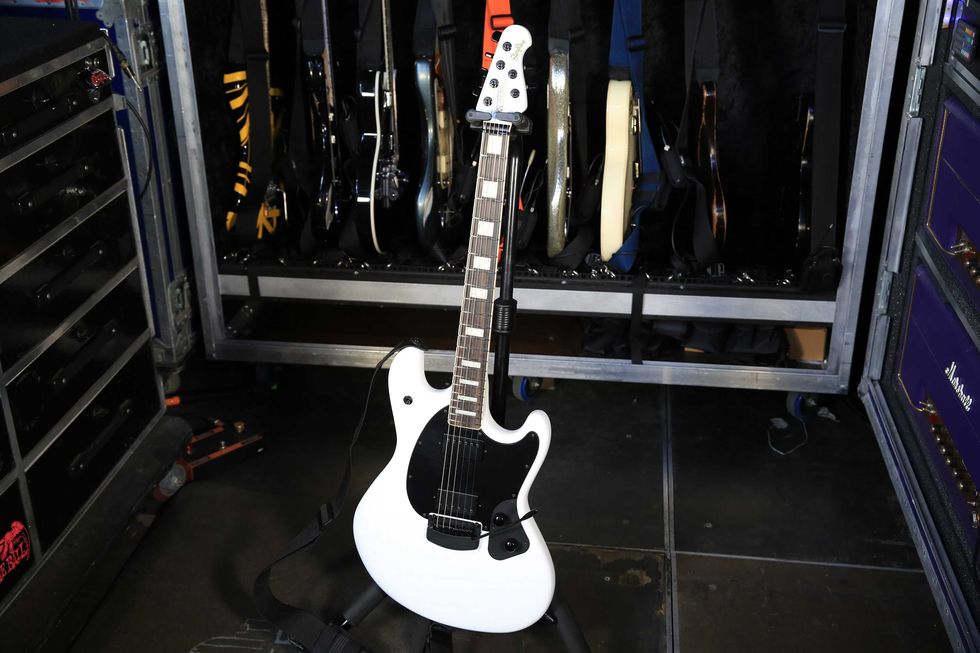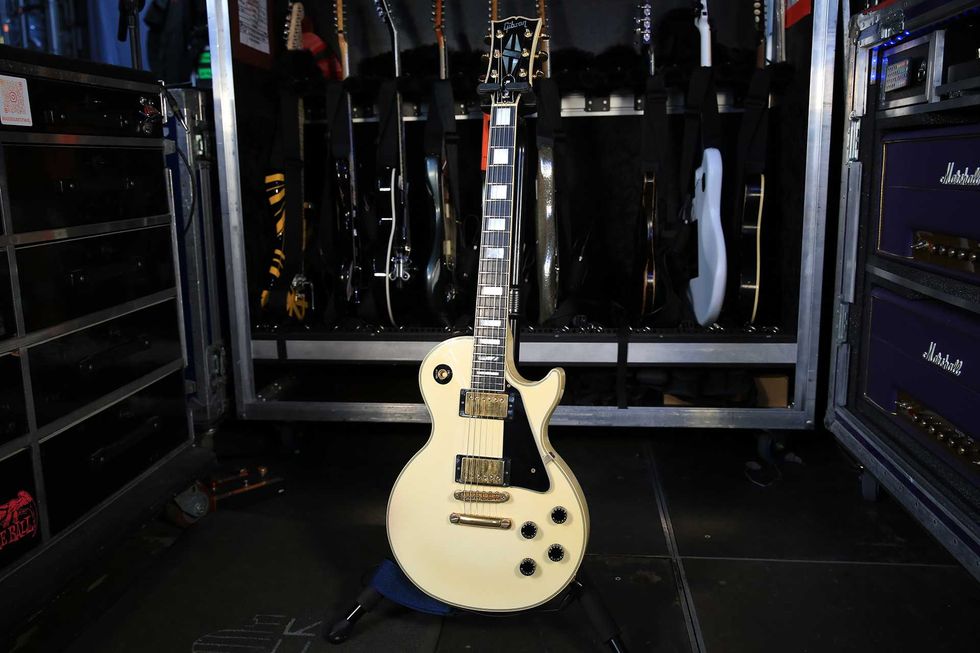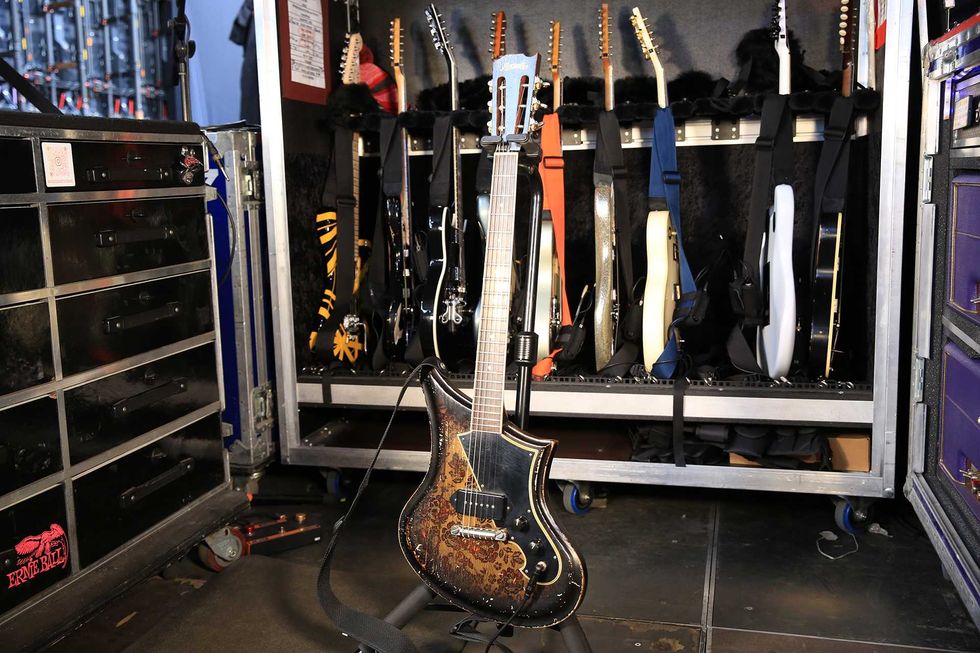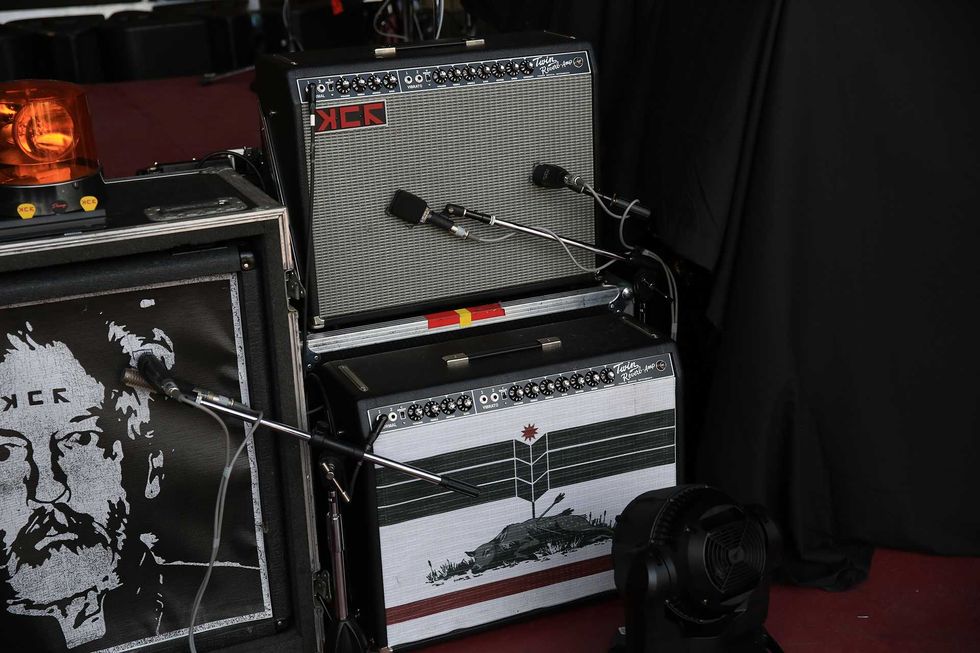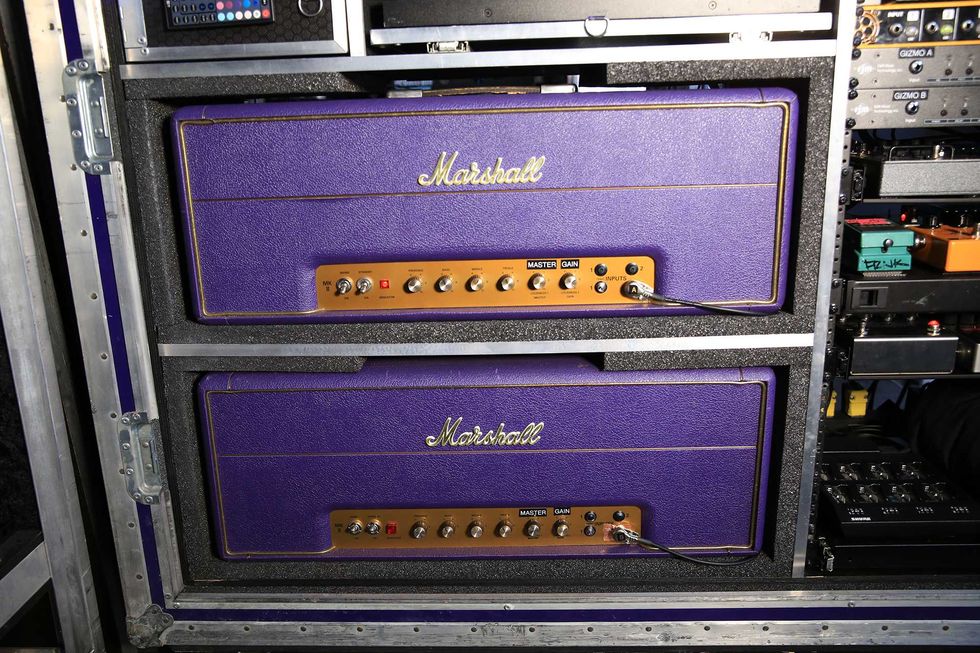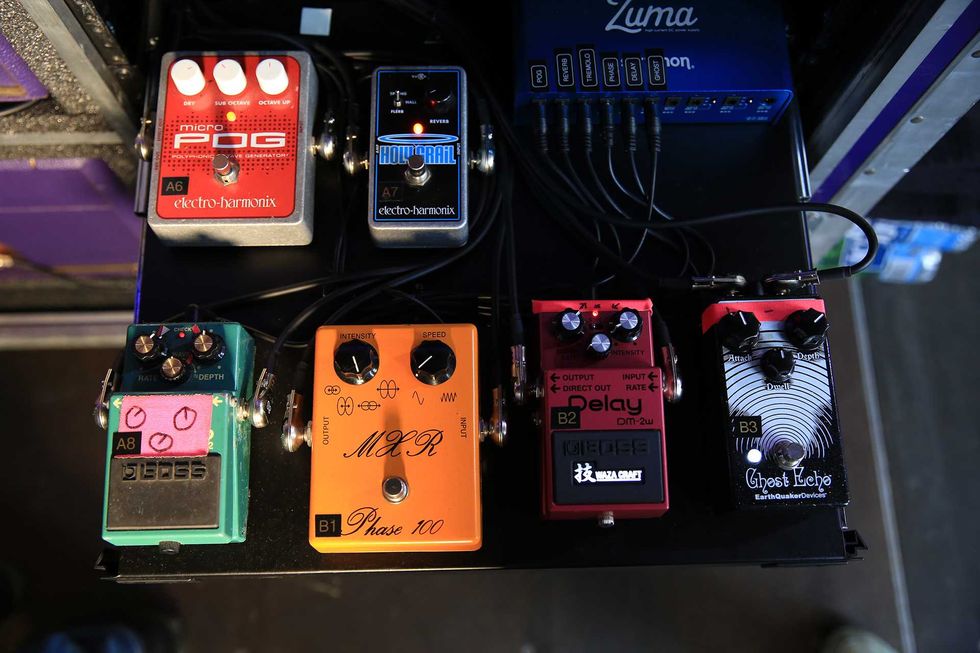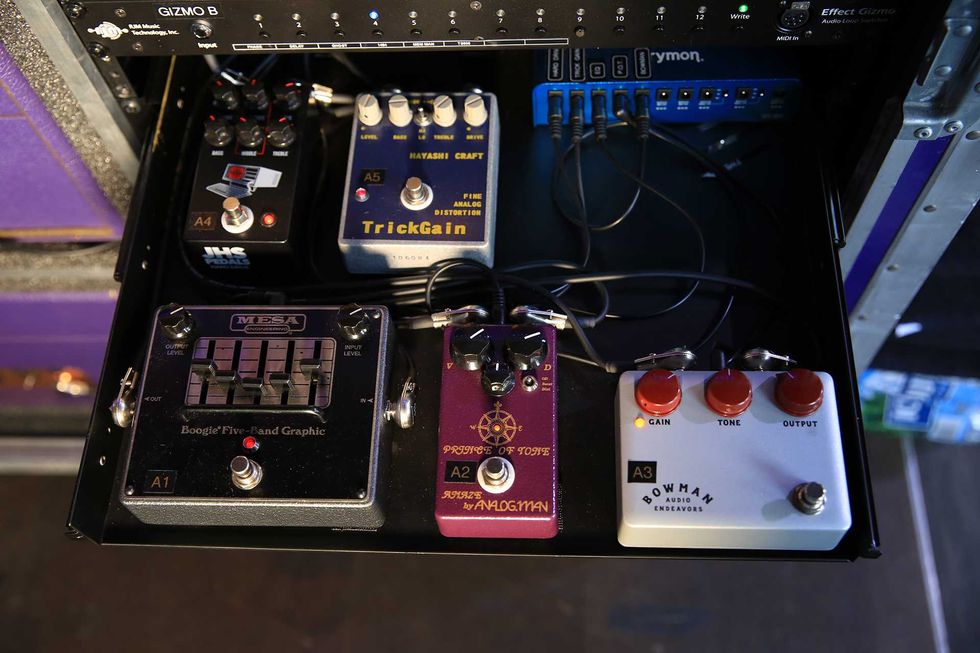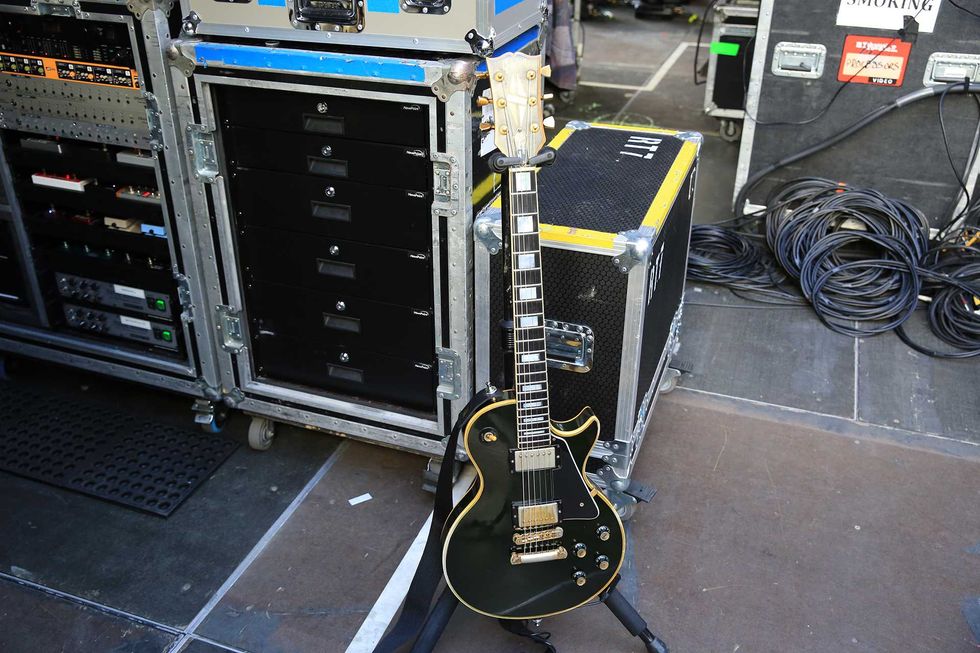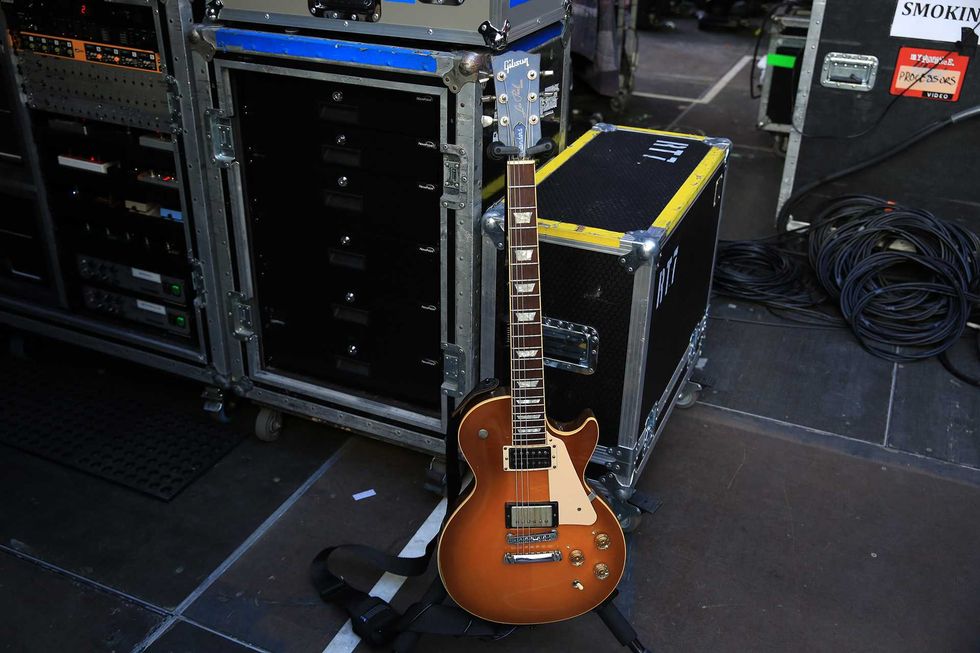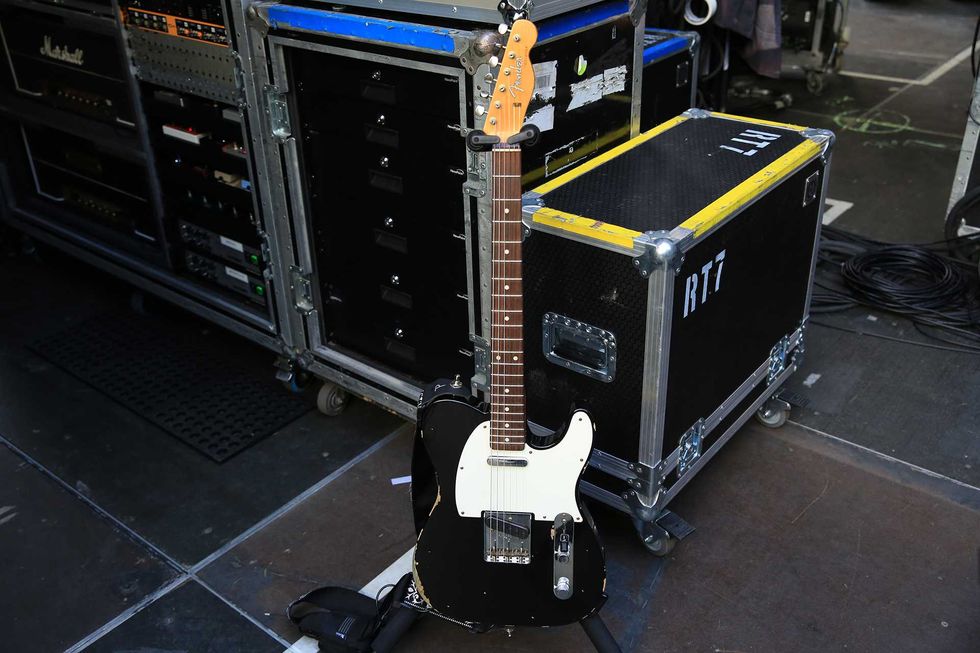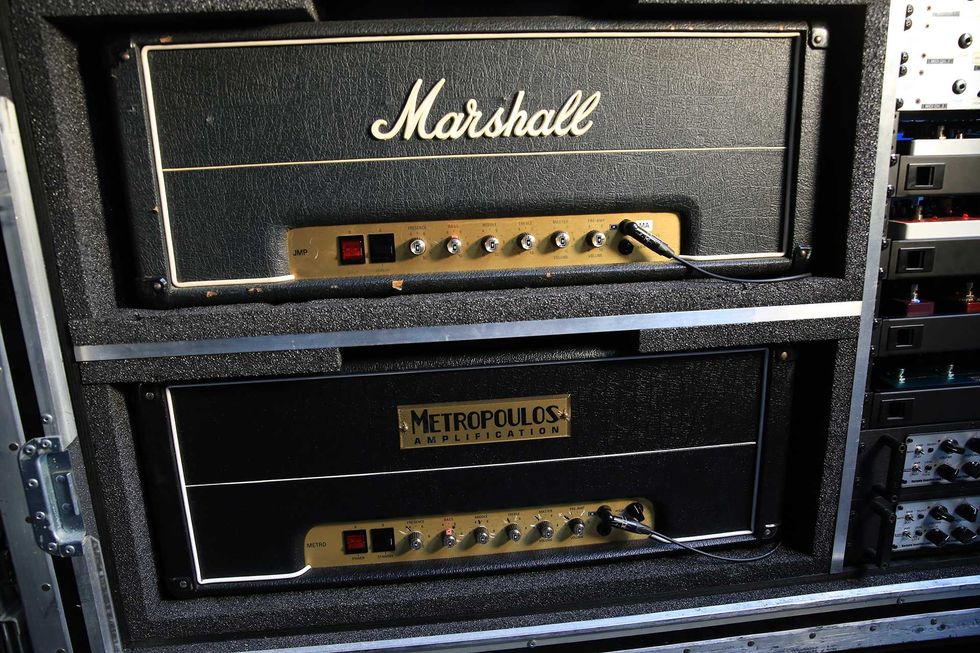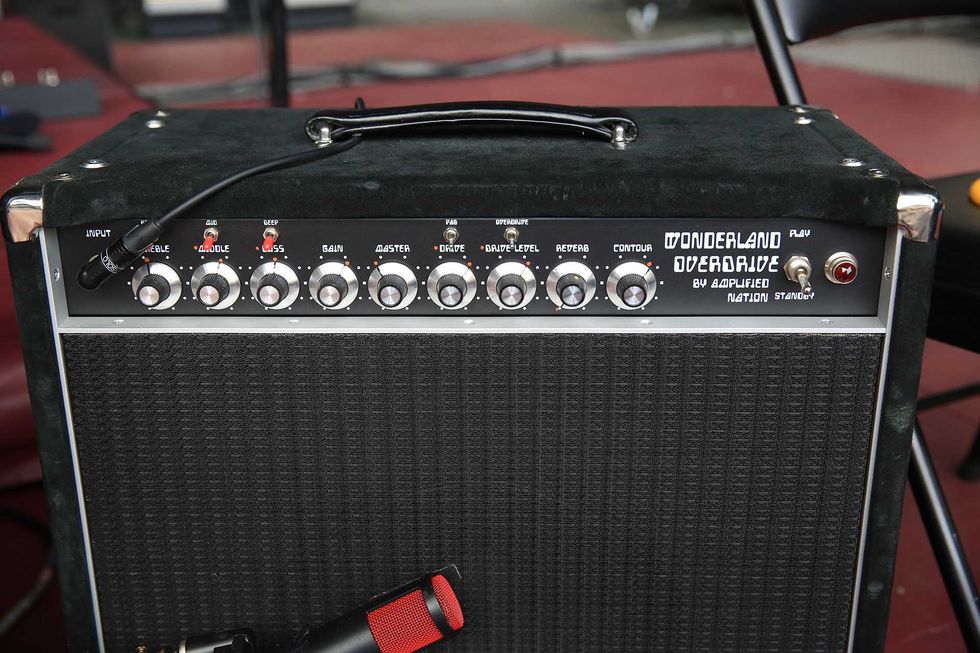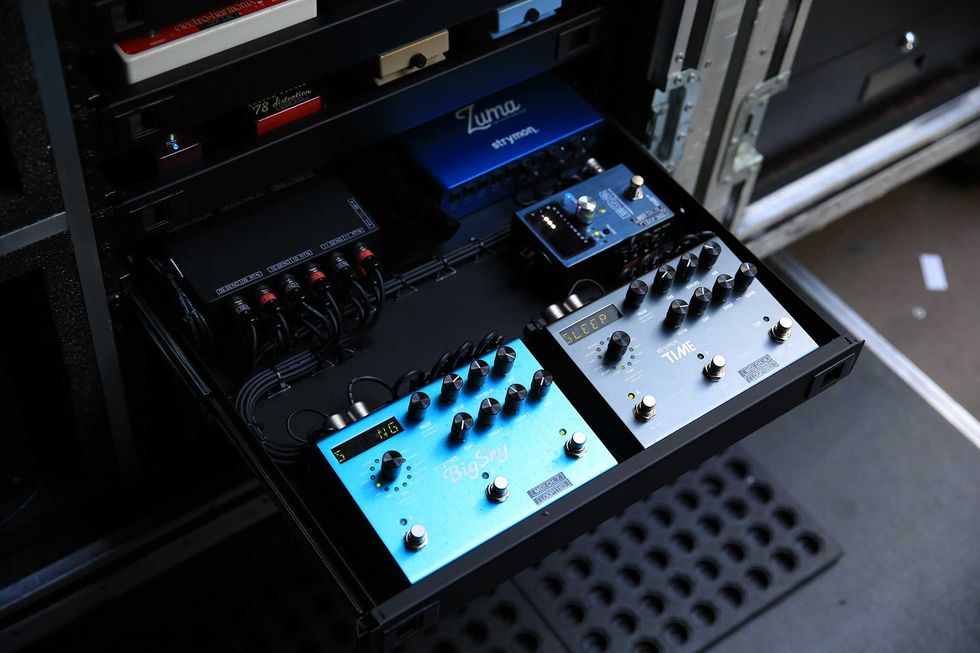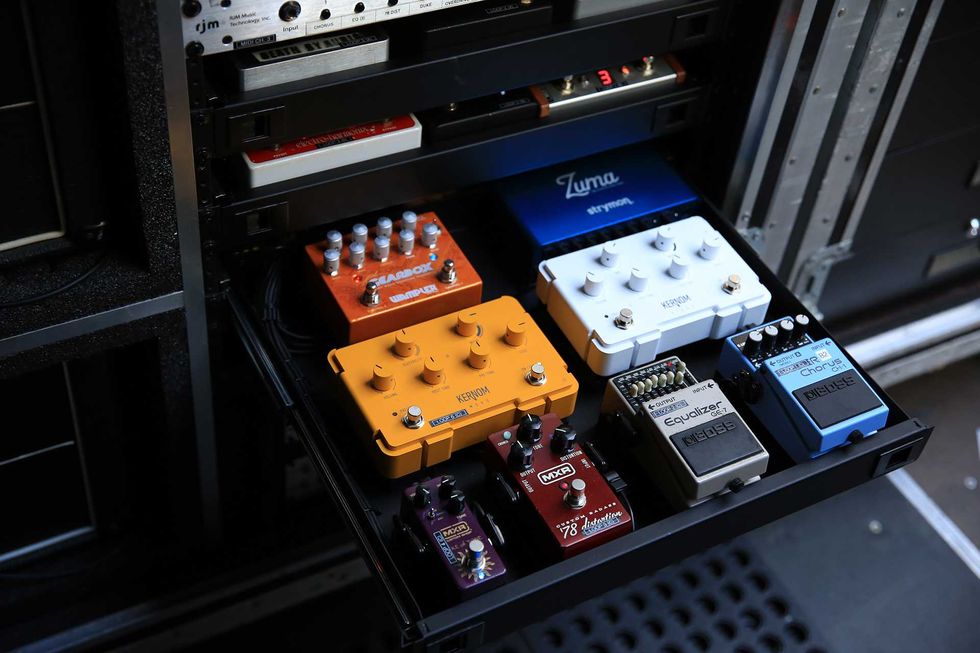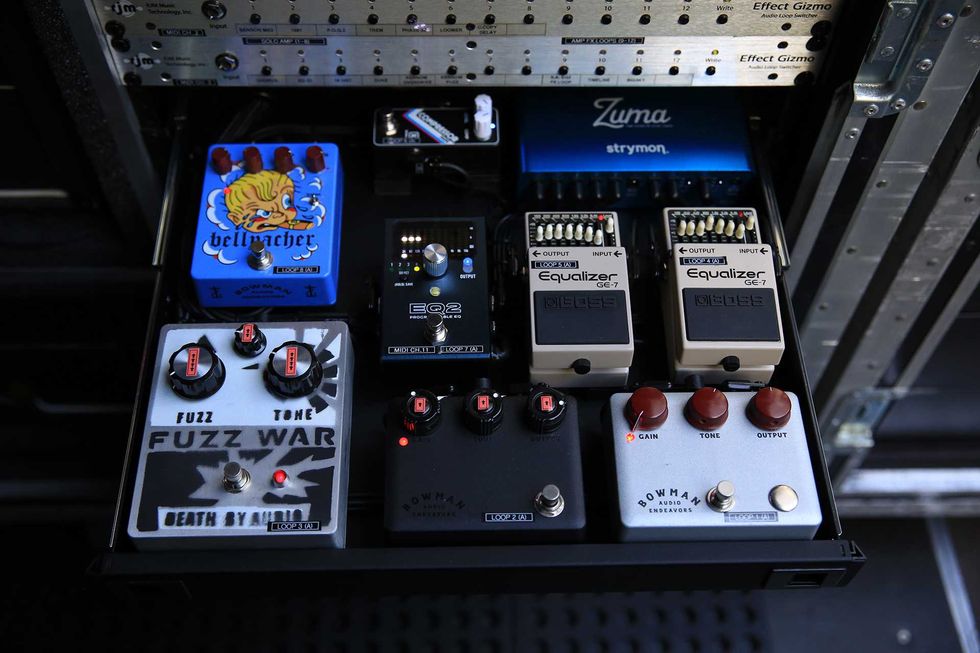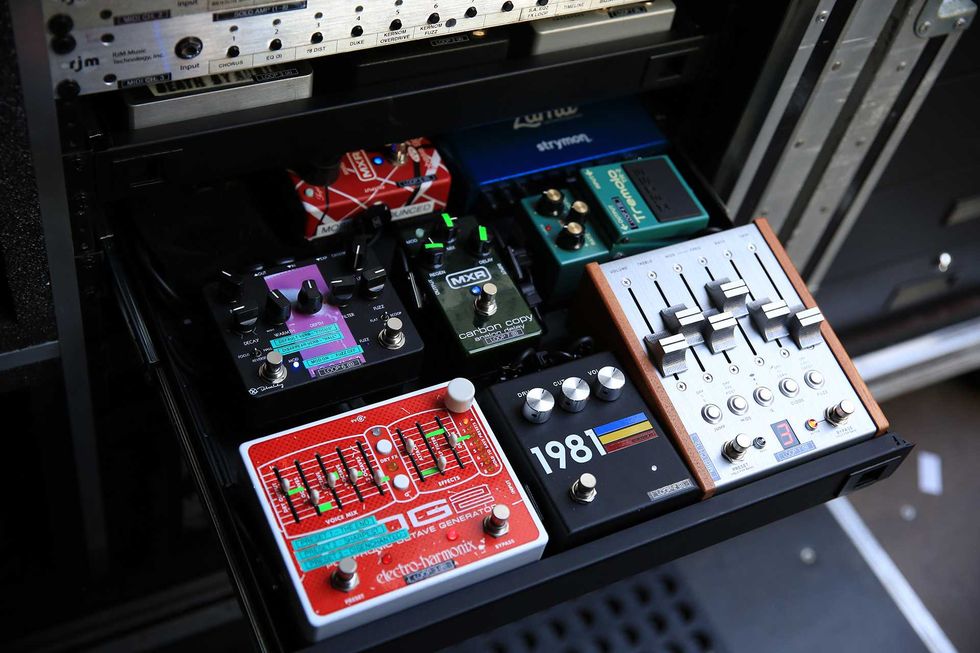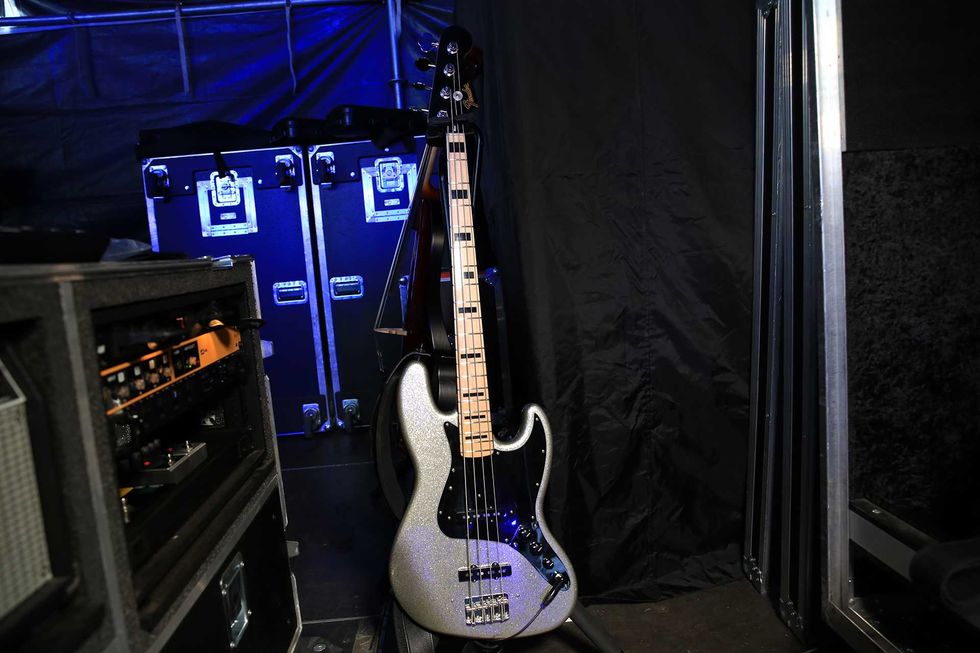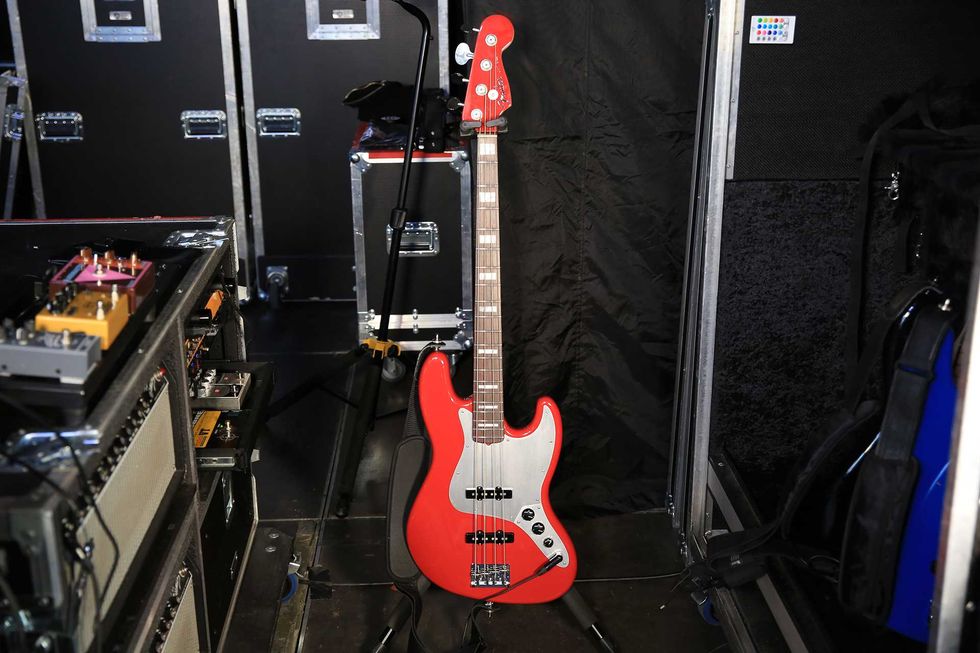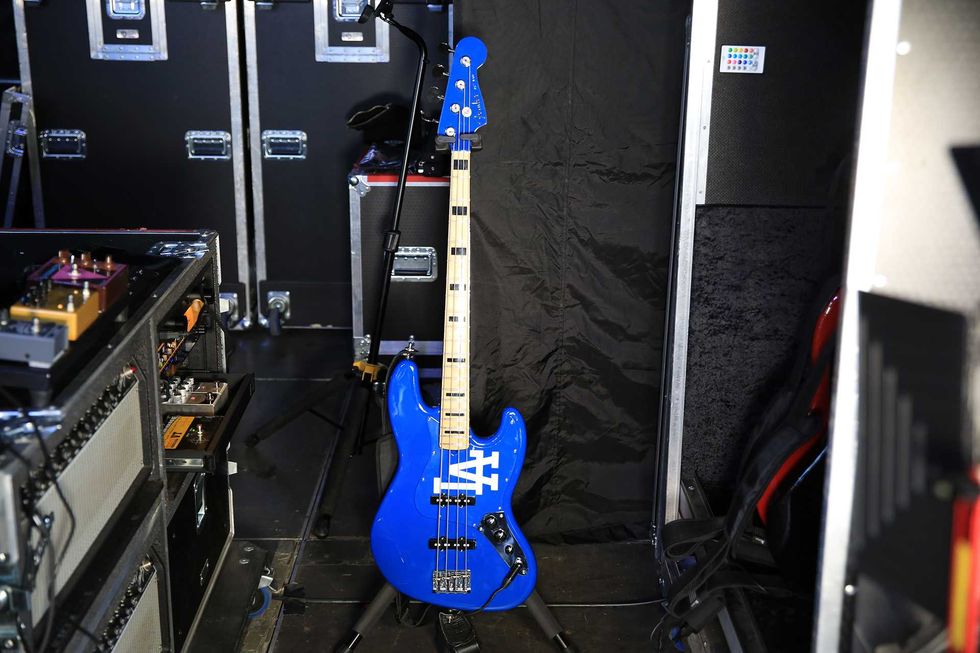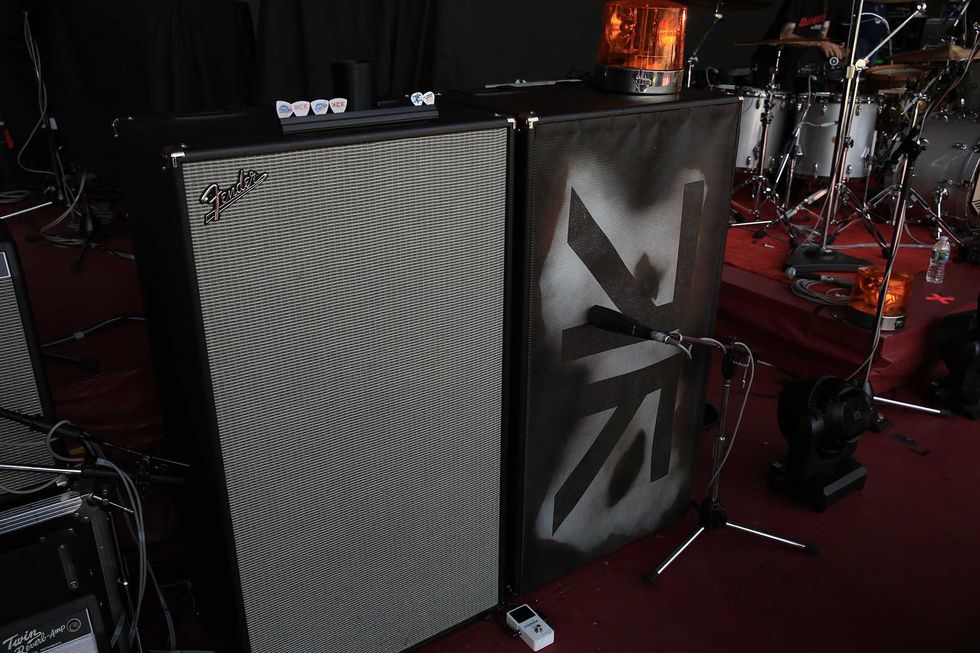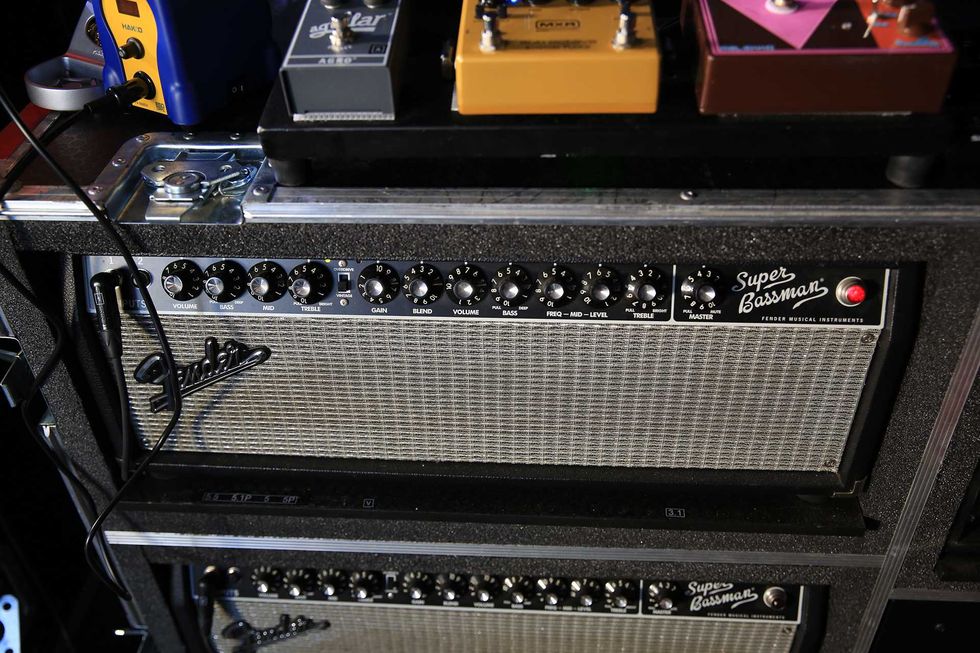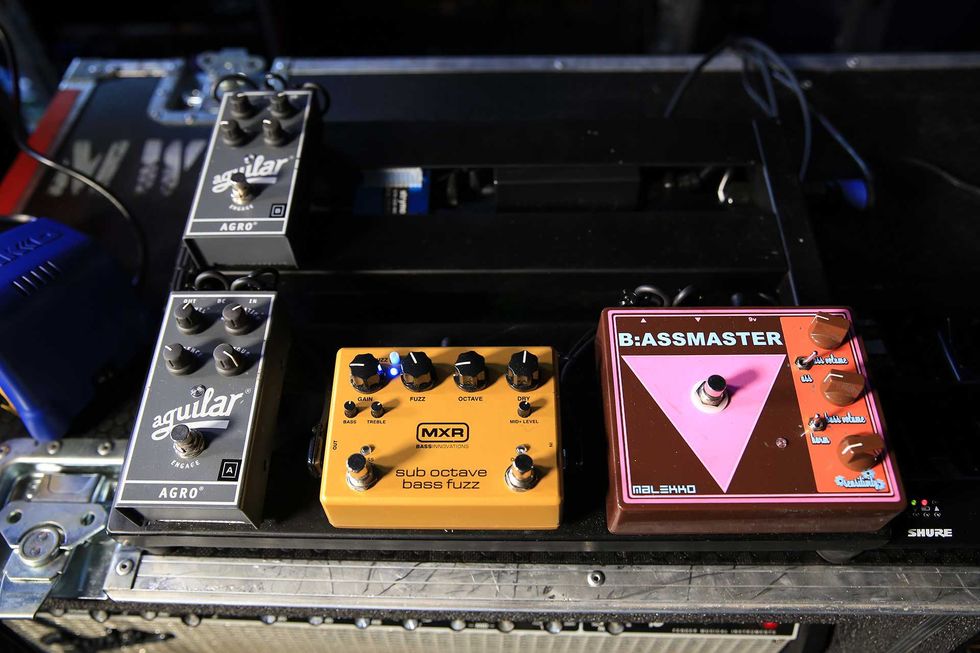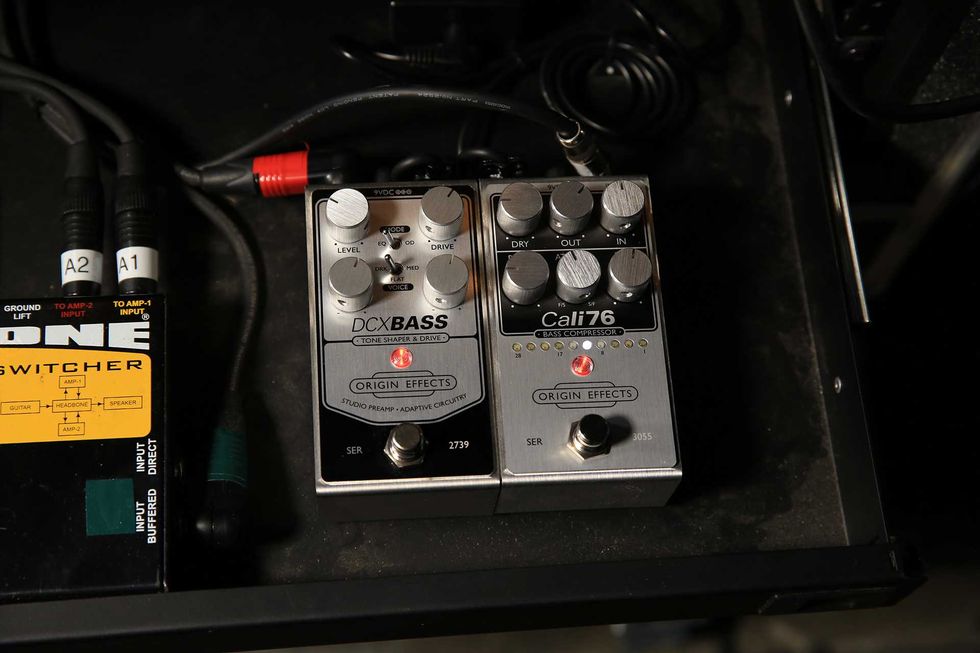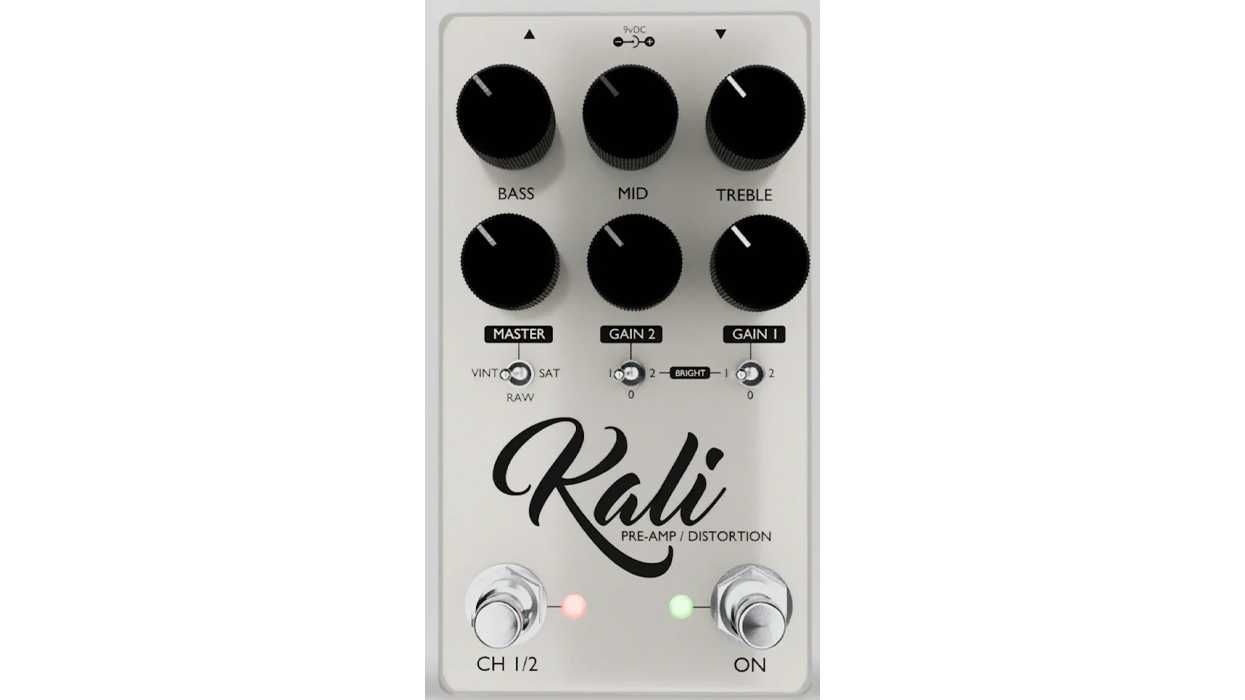
1. Here’s a point-to-point wired Triangle Big Muff, built by my friend Alex Carpenter (ATC). Alex built this pedal using terminal strips laid out in the shape of a triangle. Pretty cool, huh? 2. Look! Some builders actually want you to open their pedals and poke around. The Foxrox ZIM has several interchangeable modular cards that the user can swap out to get different sounds. 3. The “guts” of this Landgraff Dynamic Overdrive reveal a truly impressive example of a well-crafted, handbuilt boutique guitar pedal. Nearly all of the components are socketed on a tiny piece of perforated board.
Greetings students of stomp and welcome back to Stomp School. Your homework last month was to look inside one of your guitar pedals. Did you do your homework? Good! This month we’ll continue discussing what’s inside your pedals, and check out some more photos of what we gearheads refer to as “pedal guts.”
Let’s face it: In this day and age, if you’re using any type of gear it’s essential to have a certain amount of technical knowledge. Back when Zachary Vex first introduced the Z Vex Machine, he declared, “Pedal users in 1999 are very sophisticated ... we’re living in a ‘been there, done that’ pedal world.” Well, that was 12 years ago. We should be even more sophisticated now, right? Well, maybe.
No doubt, anyone using electronic music gear should probably have some degree of technical aptitude. But there seems to be a further assumption that guitarists should also have a basic understanding of electronics, as if our guitar lessons naturally included a course in Electronics 101. In truth, our education in “electronics” has been given to most of us in the form of advertising and other questionable sources.
Over the years, manufacturers big and small have converted various bits of electronic lingo into marketing jargon and then bombarded us with it. We’ve been told, for example, that our gear is “germanium powered” or that it uses MOSFETs. Seriously, do you know what a MOSFET is? I mean, everyone knows a MOSFET is a Metal Oxide Semiconductor Field Effect Transistor, right? Even if we happen to know that particular acronym, how many of us can actually explain what it is, or more importantly, why we would want it in our gear? Marshall thought we understood well enough back in the ’80s when they offered us the Marshall Lead 100 MOSFET amp. A few years later, we had the MosValve series of amps from Tube Works, and more recently we’ve been given the Fulltone Full-Drive 2 MOSFET overdrive. Clearly, there are some things guitarists are just supposed to know.
For the most part, I think Zachary Vex is right—we pedal users really are a pretty sophisticated lot. The technical expertise required to set up and operate even a modest pedalboard is usually quite a bit greater than the average person needs to hook up a DVD player, or assemble IKEA furniture. But knowing how to operate a complex gadget isn’t quite the same as understanding electronic circuit design. Likewise, developing a large vocabulary of misappropriated terminology is a poor substitute for true knowledge.
Still, as guitarists we inevitably pick up these random bits and bytes of tech-speak, often taken out of context and given a brand-new definition that’s been conveniently translated for the uninitiated gearhead. Thus, the meaning of MOSFET becomes “sounds like the thing has tubes in it.” Never mind the acronym. There often is quite a bit of validity behind the techno jargon, but it’s easy to see how a little knowledge can sometimes be a dangerous thing. The language of electronics is a strange and mysterious sound, and guitarists seem especially drawn to its magical appeal. We’re also more prone than most to superstition and mythological folklore. This tends to make us particularly susceptible to electronically enhanced snake oil. Even the savviest of us can fall prey to the electro-hype machine. I see it happen all the time, especially on certain internet guitar forums, with players who I thought should know better.
The bottom line is we’re responsible for our own education. The goal is to gain a better understanding of what goes into our gear so we can make more informed decisions about the gear we choose to play. But nobody said you have to know Ohm’s Law or own a soldering iron to do that. You can start anytime, right from where you are, and just keep moving forward. There are some great resources available to help you along your way and Premier Guitar is definitely one of them. Of course, a vast amount of information (and misinformation) can be found on the internet. A little diligence and common sense will help sort the mumbo from the jumbo. Then there’s always the hands-on approach—go pop open a stompbox and take a peak at some pedal guts.
This concludes our final semester of Stomp School. Hard to believe, but it’s been four full years since our first day of class. We’ve managed to cover a lot of stomping ground in that time. I know I’ve learned a ton of new things about the gear I use—I hope you have too. It’s time for us to graduate, but remember, your education doesn’t end here. There’ll always be new things to discover and learn—it will continue for a lifetime. And though our classes have come to an end, you’ll still have access to the entire Stomp School archive, available for reference anytime on the PG website.
I’d like to thank you for allowing me the opportunity to be your “Personal Purveyor of Pedals.” I’d also like to thank my colleague Mike Piera (Analog Man) for his collaboration on many of the earlier Stomp School columns. Finally, special thanks to Premier Guitar for providing this space for our virtual classroom. That’s all for now ... class dismissed. And until we meet again, keep on stompin’!
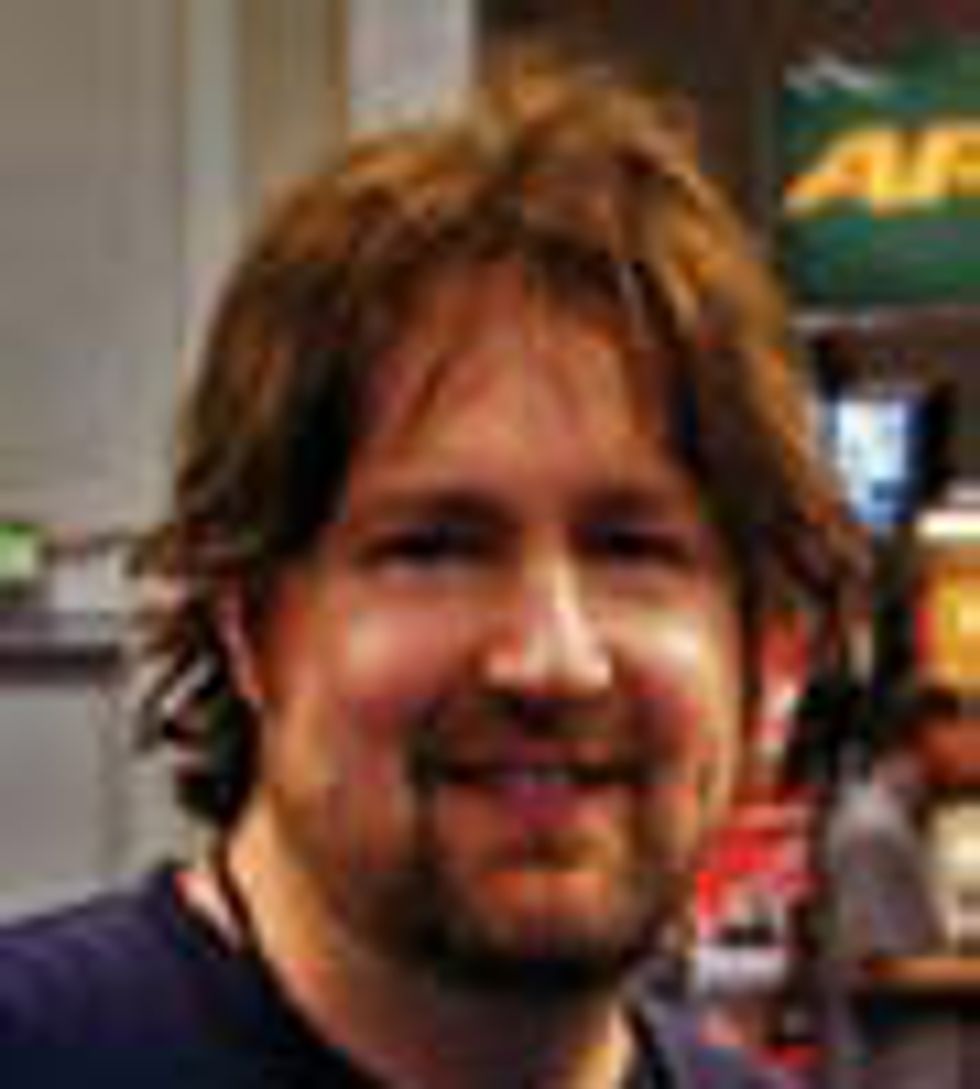 Tom Hughes (aka
Analog Tom) is owner
and proprietor of
For Musicians Only
(formusiciansonly.com)
and author of Analog
Man’s Guide to Vintage
Effects. If you have questions or comments
for Tom, feel free to email him at
stompschool@formusiciansonly.com.
Tom Hughes (aka
Analog Tom) is owner
and proprietor of
For Musicians Only
(formusiciansonly.com)
and author of Analog
Man’s Guide to Vintage
Effects. If you have questions or comments
for Tom, feel free to email him at
stompschool@formusiciansonly.com.
